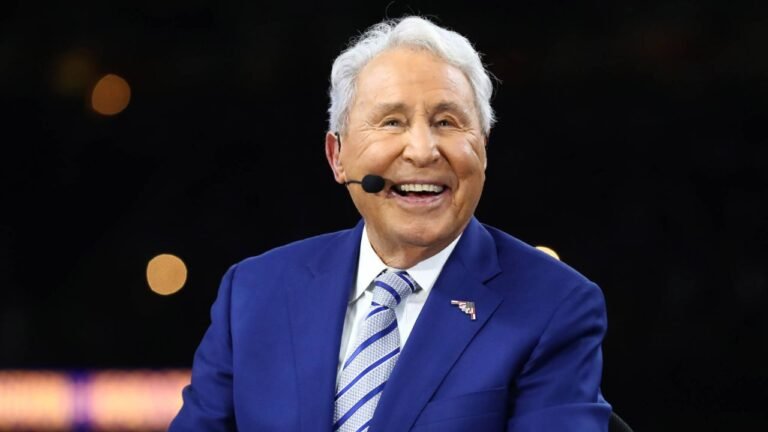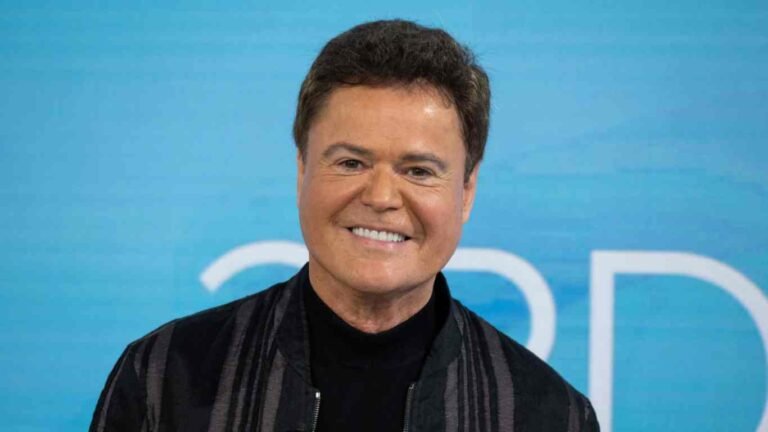Mike Lindell Net Worth, The Rise, Fall, and Controversies & More
Mike Lindell, the American entrepreneur and CEO of My Pillow, has become a figure of both inspiration and controversy. Known for his incredible rise from addiction to business success, Lindell’s journey is a fascinating tale of entrepreneurship, political involvement, and personal battles. At the peak of his career, Lindell’s net worth soared to $200 million, but as of recent years, it has plummeted to nearly nothing. His company, My Pillow, once a household name, has seen its revenue decline by more than 90%, and Lindell’s personal financial situation is now precarious, reportedly standing at a net worth of $0.
Early Life and Struggles with Addiction
Born Michael James Lindell on June 28, 1961, in Mankato, Minnesota, Lindell grew up in Chaska and Carver, Minnesota. His early life was marked by struggles with gambling and substance abuse. After high school, Lindell briefly attended the University of Minnesota before dropping out to pursue other ventures. His gambling addiction and later, crack cocaine use, severely impacted his personal and professional life. By the late 1990s, Lindell’s addiction had spiraled out of control. He has openly discussed how in 2008, he was so addicted that he stayed awake for 19 days straight.
It wasn’t until January 2009 that Lindell made a drastic change, quitting drugs, alcohol, and gambling. He credits his recovery to his newfound faith, which helped him turn his life around. His sobriety set the stage for his future success with My Pillow.
The Birth of My Pillow
In 2004, Lindell invented My Pillow, a product that would eventually make him a household name. However, it wasn’t an instant success. For several years, Lindell sold his pillows at trade shows and state fairs, gaining some attention but little mainstream traction. The turning point came in 2011 when Lindell invested $500,000 into a 30-minute infomercial for My Pillow. The infomercial was a game-changer, airing hundreds of times daily across various channels. It quickly became one of the most successful infomercials in history, helping My Pillow grow from a small operation with five employees to a company employing over 500 people within 40 days.
At its height, My Pillow grossed $110 million annually and was available in major retail stores such as Walmart, Bed Bath & Beyond, and Kohl’s. By 2017, My Pillow was estimated to be worth approximately $500 million. Lindell had become a symbol of the American Dream, having overcome addiction to build a successful business empire.
The Financial Decline and Political Involvement
Lindell’s financial fortunes began to unravel around 2020, coinciding with his vocal support for Donald Trump and his controversial claims surrounding the 2020 presidential election. Lindell became deeply involved in promoting theories that the election was rigged against Trump. This involvement led him to spend millions of dollars of his personal fortune in attempts to prove these claims. Reports suggest that Lindell spent between $25 to $50 million on election-related lawsuits, with little to show for it. He also launched a social media platform, Frank Social, which failed to gain traction and required an estimated $1 million per month to maintain.
As Lindell became more entwined in political controversies, My Pillow’s sales began to decline. In 2022, major retailers like Walmart, Bed Bath & Beyond, and Kohl’s stopped carrying My Pillow products, citing a combination of underperformance and the growing controversy surrounding Lindell. By 2023, Lindell claimed that My Pillow’s revenue had dropped by 95%, from over $100 million annually to just $5 million.
Legal Troubles and Financial Crisis
The financial struggles did not stop at the loss of retail partnerships. Lindell’s involvement in promoting election conspiracies led to legal issues, including a defamation lawsuit filed by Dominion Voting Systems for $1.3 billion. This legal battle, along with other expenses related to his political ventures, has drained Lindell’s finances.
In 2023, Lindell revealed that he had “lost everything,” claiming to be “out of money.” Reports indicated that he was forced to borrow millions and sell assets just to stay afloat. His legal fees continued to pile up, and in October 2023, his attorneys filed a claim, stating that he owed millions in unpaid legal fees. They requested to drop him as a client, with Lindell confirming his dire financial situation.
Lindell’s once-prized possessions, including his private jet, are also reported to have been sold to help cover costs. At one point, he owned a Dassault-Breguet Falcon 50 private jet, valued at up to $3.5 million, but he was forced to sell it in 2021 as his financial situation worsened.
Personal Life and Controversies
Mike Lindell has had a tumultuous personal life, with two marriages. He married Karen Dickey in 1987, and the couple had four children. They divorced after 20 years of marriage. Lindell then wed Dallas Yocum in 2013, but the marriage was short-lived, ending after a month. In 2021, a tabloid claimed Lindell had a brief relationship with actress Jane Krakowski, a claim both denied.
Lindell has faced security concerns due to his political views, leading him to live in undisclosed locations. He moved to Texas in 2023, after revealing that he could no longer safely return to Minnesota due to threats.
In addition to his business ventures, Lindell is involved in charitable efforts through his Lindell Foundation, which helps individuals struggling with addiction. His recovery from drug abuse has been a central part of his personal narrative and has influenced many of his public appearances and statements.
The Legacy of Mike Lindell
Today, Mike Lindell’s legacy is complicated. From a symbol of American entrepreneurship and recovery to a polarizing figure due to his political affiliations and public statements, Lindell’s story reflects both the heights of success and the depths of controversy. Once worth up to $300 million, his net worth has collapsed to nothing, leaving him a cautionary tale about the consequences of mixing business, politics, and personal beliefs.
Despite his financial troubles, Lindell’s story remains one of redemption and persistence. His company, My Pillow, continues to operate, though at a fraction of its former size, and his political involvement remains as prominent as ever. Whether he will regain his financial footing or continue to fight legal battles remains to be seen, but his journey has undoubtedly made him one of the most interesting and divisive figures in recent American business history.






